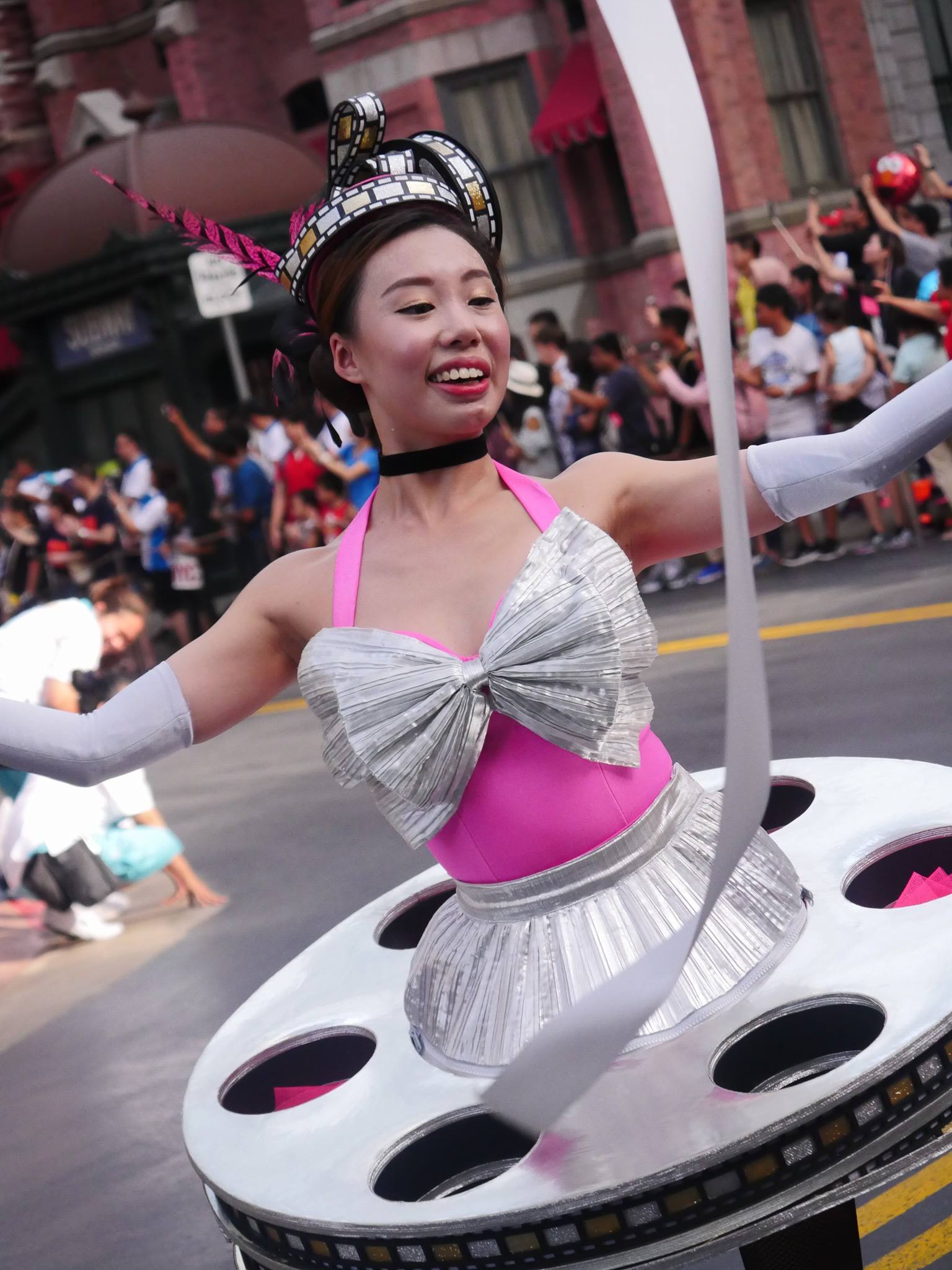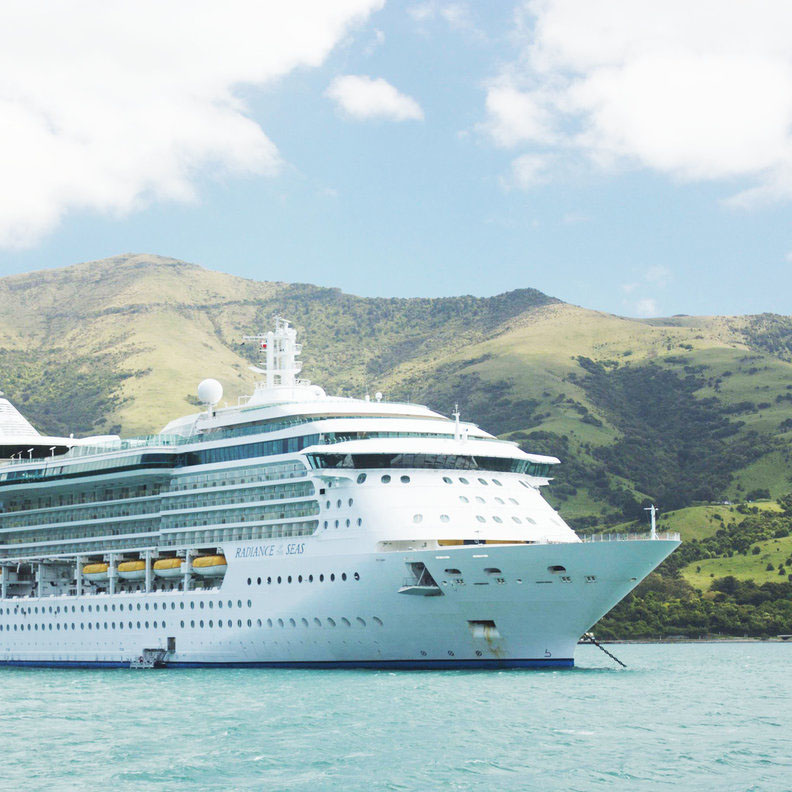Opportunities Abroad: The Theme Park Dancer
Theme parks are happy places, full of exhilarating rides, fun characters, delicious treats, and constant entertainment - anything from production shows to parades and character appearances. For a dancer or singer, they can be happy places to work too, so if you’re interested in new experiences overseas (or alternatively right here in Australia), here’s the lowdown on life as a theme park performer.
There are a few locations to consider as possible employment options. If you’re from Australia, keep in mind that you are unlikely to be able to work at any of the US theme parks, unless you can get a special visa; not impossible, but will probably require the assistance of an immigration lawyer and is often a lengthy and drawn out process. For us Aussies, the most viable options are the Asian theme parks (Universal Studios Japan or Singapore, Disney Shanghai, Hong Kong or Tokyo), Dubai (Dubai Parks & Resorts, IMG Worlds of Adventure) or our very own Gold Coast theme parks (Movieworld or Dreamworld). If you have British or European citizenship you can also consider Disneyland Paris.
Mel's Dinettes, Universal Studios Singapore, photo by Angela Low
“Whenever we hold auditions in Australia, we’re looking for personality, versatility as well as the willingness and ability to follow direction. Potential candidates need to expect to be put through their paces, as we aren’t merely looking at performers to fit specific roles, but rather those that we can use for the multitude of seasonal events we offer throughout the contract year. Sing your heart out, dance your hardest, but most of all show us YOU!”
The audition format will of course vary depending on the company & the role. Aussie performer Mellissa Kenny, 30, who has worked for Tokyo Disneyland, Tokyo Disney Sea and Universal Studios Singapore, says "The audition process can be quite long and span 1-2 days and several stages. I've done everything from singing, learning different routines and styles of dance to acting work and improvisation. They can actually be a lot of fun and the audition panel just want to see you enjoy yourself, so make sure you smile and give it everything you've got!"
The key with theme park performing is that you are representing huge brands that are selling a magical and immersive experience - often you will be part of a storyline or overall theme that audiences and guests are extremely familiar with. This means that you need to be an excellent storyteller - it won't be all about technique - you'll need to be expressive, dynamic, and able to align yourself with the branding of the company. You may also find that the requirements are quite strict for things like height and overall look; Disney will only hire you to be a princess if you meet the exact height they have set for that role, which would then be completely different to the height requirement to be Tinkerbell, for example.
Mellissa Kenny, Universal Studios, photo by Angela Low
Grace Newton, Universal Studios, photo by Angela Low
Whatever the role, you'll still need to show your technical abilities (although if you're auditioning as a 'face character' the level of dancing required might be lower). British performer Grace Newton, 25, says her IMG Worlds of Adventure audition was "one of the best I've ever been to. Having been pre-selected from CV and showreel submissions the audition numbers were relatively small compared to a lot of open calls. On arrival we were shown an incredible video of the new theme park; the dream was well and truly sold to us. They even gave each of us goody bags on arrival, containing a water bottle, snacks and a towel to help us get through the audition. I will stress that of all the hundreds of auditions I have attended, this is the only time that this has happened! The first round was dancing and they hired an incredible French choreographer who taught us a beautiful lyrical/contemporary dance to show off our technique. After cuts, we had to do prepared monologues and songs going into the room one at a time. However, I auditioned in October and didn't hear until February that I got the job!"
If you're unable to attend a live audition, or there are none held near you, you might be able to be considered for employment via a video showreel. Chelsea Flain, 25, from the UK, who has performed at both Dubai Parks & Resorts and Universal Studios Singapore, says, "I was already on a contract performing so I was unable to go to the live auditions. Due to this I sent off my showreel to both companies and was lucky enough to land the jobs. For my submissions I added extra song and dance sections to suit the roles I was applying for, to show that I was capable of the show material they required." This may not always be an option however, and Grace, who in addition to IMG has also worked for Universal Studio Singapore, says that although she was hired for Universal via showreel, "to me it is always better to audition in person if the opportunity is there for you; it is an easier way of conveying your talent and personality and it is likely that companies will hire from live auditions before reviewing showreels."
Chelsea Flain, Universal Studios, photo by Angela Low
Every contract is going to be different, but you can expect to do at least some of the following types of performing: short shows performed at multiple intervals through the day, parades, character meet and greets, seasonal events, roadshows, promotional shows, and longer full length shows in a themed theatre. One of the most popular shows at Tokyo Disney is One Man's Dream II, running at around 30 minutes long. If you're cast in this show, you'll be a part of a whole range of magical Disney scenes including Tarzan, Peter Pan, the Disney Villains and the Princes and Princesses. Peter Pan and Wendy even get to fly! Or you might be performing in a shorter show, such as the Mel's Dinettes or the Cruisers at Universal Studios Singapore, running at around 10-15 minutes total and consisting of high-intensity dancing and live singing (some performers here will do other longer shows in addition to this, depending on the season). You would perform these shows several times a day, with breaks in between for resting and refuelling for the next one. Even more brief are the mini-shows performed by characters such as Catwoman or the Joker at Movieworld. These last only a couple of minutes and are interactive with the surroundings as though it is a movie set, with some movement/acting involved. All these various performances will likely be very different to the type of work you might do if you're cast in a musical tour, or work aboard a cruise ship, where you'll perform a full length production only once or twice in a day.
One Man's Dream II, Disneyland Tokyo
Character meet-and-greet sessions are another unique aspect of theme park performing, where you will be dressed as a well known character, and instead of "performing", you'll be standing and taking photos and talking with guests. This is actually a lot harder than it sounds, as you might need to use an accent (think Betty Boop's cutesy American for example) and you will certainly have to adopt specific mannerisms and movement styles that are set for your character. If you're wearing a full character suit (like Mickey Mouse!) you might not have to talk but you'll need to get used to moving around with the bulk of the costume in the way. Often, if the costume is particularly restrictive, you'll be assigned a minder or a guide who will make sure you can get around without bumping into people!
Another new challenge might be dancing in the parades. You'll be taught choreography that moves, but you'll constantly be adjusting and compensating for the very slow speed of the parade floats, and for various things that might come up along the way. You'll have to remain very aware of your surroundings and of your fellow dancers so that you don't fall out of formation, and if the parade comes to a standstill, you will need to keep dancing on the spot and interacting with the crowd so that there's no awkward pause for the audience. Keep in mind as well that the climate in many of the countries where the theme parks are located is often hot, so whilst the dancing might be simple, you can get tired quickly from spending time out in the heat in your costumes.
Dancers in the Hollywood Dreams Parade. Photographs by Angela Low
For Mellissa, she says "my favourite thing about working in a theme park is living in a different country and performing for people all over the world. I have made friends for life and worked with some of the most talented and skilled performers, choreographers and creative directors I could ever imagine to meet. I have also had great job security for a long period of time and even met my husband 6 years ago on our first contract!" Her advice if you are considering it as a career is that "contracts can be hard to come by so make sure you work hard and don't take anything for granted."
Grace says "my favourite thing is that theme parks have a lot of seasonal events so my job is ever changing, and we're constantly going back into the rehearsal room and workshopping and creating new shows. Having those exciting show opening days every few months means you get heaps of variety within one contract. My advice to anyone thinking about it as a career is to remember that this is a daily operation running 365 days a year, so be prepared for change, and look at change as exciting. They can and will use you for a whole variety of things, from a scare actor at Halloween using prosthetics, to being onstage as Marilyn Monroe in her gold dress at Christmas time. Embrace it; theme parks are the best places to work if you are ready for anything!"
Chelsea says "For me, the best part is the magic I can bring to a child's day and to individuals who come to the park. We add an extra experience for them and it's great being up close and personal, different from my contracts as a cruise ship singer. I also love that there are forever new shows and events happening which challenge you as a performer and keep the contract fun and interesting." Her final piece of advice is "just to train and work hard in your craft. Unlike many other contracts, a theme park requires many skill sets, so become that triple threat!"
Under the Mistletoe, Universal Studios, photo by Angela Low
If you think life as a theme park performer sounds perfect for you, we've included some links below to sites with casting and employment information.
Universal Studios Japan | Universal Studios Singapore
Featured images by Angela Low @angelanduss
Article by Emily Newton-Smith
Read More:

















